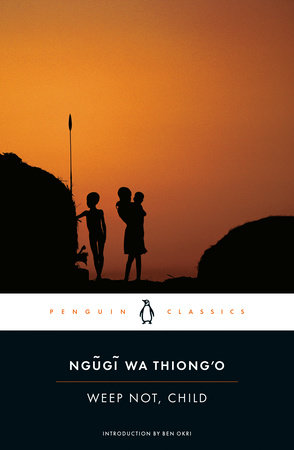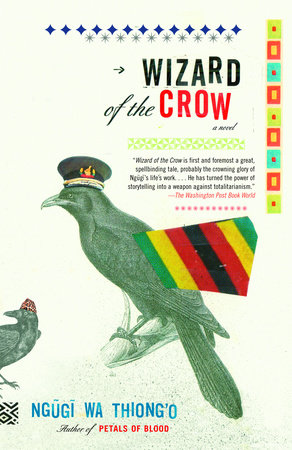A Ngũgĩ wa Thiong'o Reading List
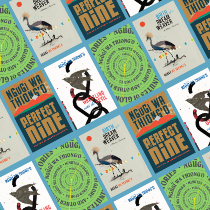
Ngũgĩ wa Thiong’o is one of the giants of contemporary literature. Writing primarily in Gikuyu, his writing spans genre and form—from novels to criticism, memoir to plays—and has been praised from the likes of President Barack Obama, the New York Times Book Review, The Guardian, and others. To celebrate the publication of his new novel The Perfect Nine, we thought we would share a reading list of some of Ngũgĩ's notable works.
* * * * * * *
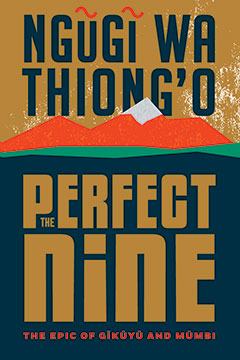
The Perfect Nine: The Epic of Gĩkũyũ and Mũmbi
Translated from the Gĩkũyũ by the author, this dazzling, genre-defying novel is his first written in verse. The Perfect Nine retells the origin myth of the Gĩkũyũ people of Kenya from a strongly feminist perspective. An epic in every sense of the word, the book blends folklore, mythology, adventure, and allegory to chronicle the efforts the founders Gĩkũyũ and Mũmbi make to find partners for their ten beautiful daughters—called “The Perfect Nine”—and the challenges posed to the 99 suitors who seek their hands. In a starred review, Booklist says The Perfect Nine is “essential reading and especially vital for our times."
Weep Not, Child
Originally published in 1964, Weep Not, Child is considered to be the fist major novel in English by an East African. The novel explores the effects of the Mau Mau uprising on the lives of everyday Kenyans, and on one family in particular by following two brothers, Njoroge and Kamau. Njoroge is to attend school, while his brother Kamau will train to be a carpentar but as tensions rise between workers and the colonial government those dreams for the future are challenged.
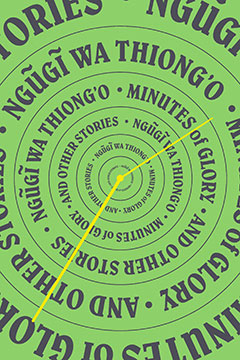
Minutes of Glory: And Other Stories
While known for his novels and plays, Ngũgĩ honed his craft as a short story writer. The stories in this collection cover the period of British colonial rule and resistance in Kenya to the bittersweet experience of independence, they feature women fighting for their space in a patriarchal society; big men in their Bentleys who have inherited power from the British; and rebels who still embody the fighting spirit of the downtrodden. In the title story “Minutes of Glory,” one of his most beloved stories, Ngũgĩ tells of Beatrice, a sad but ambitious waitress who fantasizes about being feted and lauded over by the middle-class clientele in the city’s beer halls. Her dream leads her on a witty and heartbreaking adventure. You can read this beloved story in Socialist Stories.
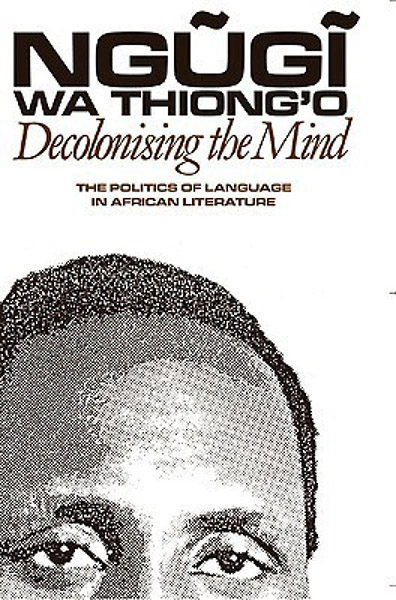
Decolonising the Mind: The Politics of Language in African Literature
This landmark collection of essays examines the role of language in shaping national culture, history, and identity. Originally published in 1986, Decolonising the Mind draws upon Ngũgĩ experiences as writer and scholar, blending autobiography, postcolonial theory, and literary criticism to advocate for linguistic decolonization.
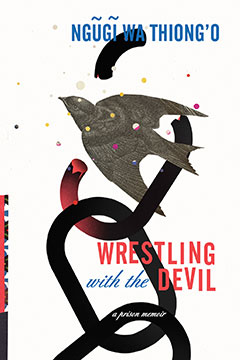
Wrestling with the Devil: A Prison Memoir
Ngũgĩ was arrested and imprisoned in 1977 for the political message of the play Ngaahika Ndeenda: Ithaako ria ngerekano (I Will Marry When I Want), which he co-wrote with Ngugi wa Mirii. This powerful memoir begins literally half an hour before his release on December 12, 1978. In one extended flashback he recalls the night, a year earlier, when armed police pulled him from his home and jailed him in Kenya’s Kamĩtĩ Maximum Security Prison. In a conscious effort to fight back the humiliation and the intended degradation, the renowned author decides to write a novel on toilet paper, the only paper to which he has access, a book that will become his classic, Devil on the Cross. Ngũgĩ captures all of the drama and challenges of writing under twenty-four-hour surveillance and the pain of being torn from his family.
Devil on the Cross
A powerful fictional critique of capitalism, written while Ngũgĩ was in prison for political message of his play I Will Marry When I Want, is considered by some to be the first major novel written in Gikuyu. Devil on the Cross tells the tragic story of Wariinga, a young woman who moves to the Kenyan capital, Nairobi, from a small rural town, only to be taken advantage of and exploited by her corrupt boss. The story of this novel is captured in his memoir Wrestling with the Devil.
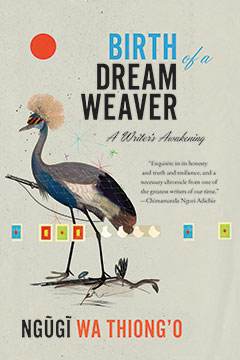
Birth of a Dream Weaver: A Writer’s Awakening
In this acclaimed memoir, Ngũgĩ wa Thiong’o, then known as James Ngugi, recounts the four crucial years he spent at Makerere University in Kampala, Uganda and his birth as a writer. It was at Makerere where he found his voice as a journalist, short story writer, playwright, and novelist, a period where colonial empires were crumbling and new nations were being born.
Wizard of the Crow
In this landmark novel Ngũgĩ turns his keen eye on corruption to satirize African society. Set in the imaginary Free Republic of Aburĩria, Wizard of the Crow tells the story of a battle for the souls of the Aburĩrian people, between megalomaniac dictator and an unemployed young man who has picked up the mantle of magician.

